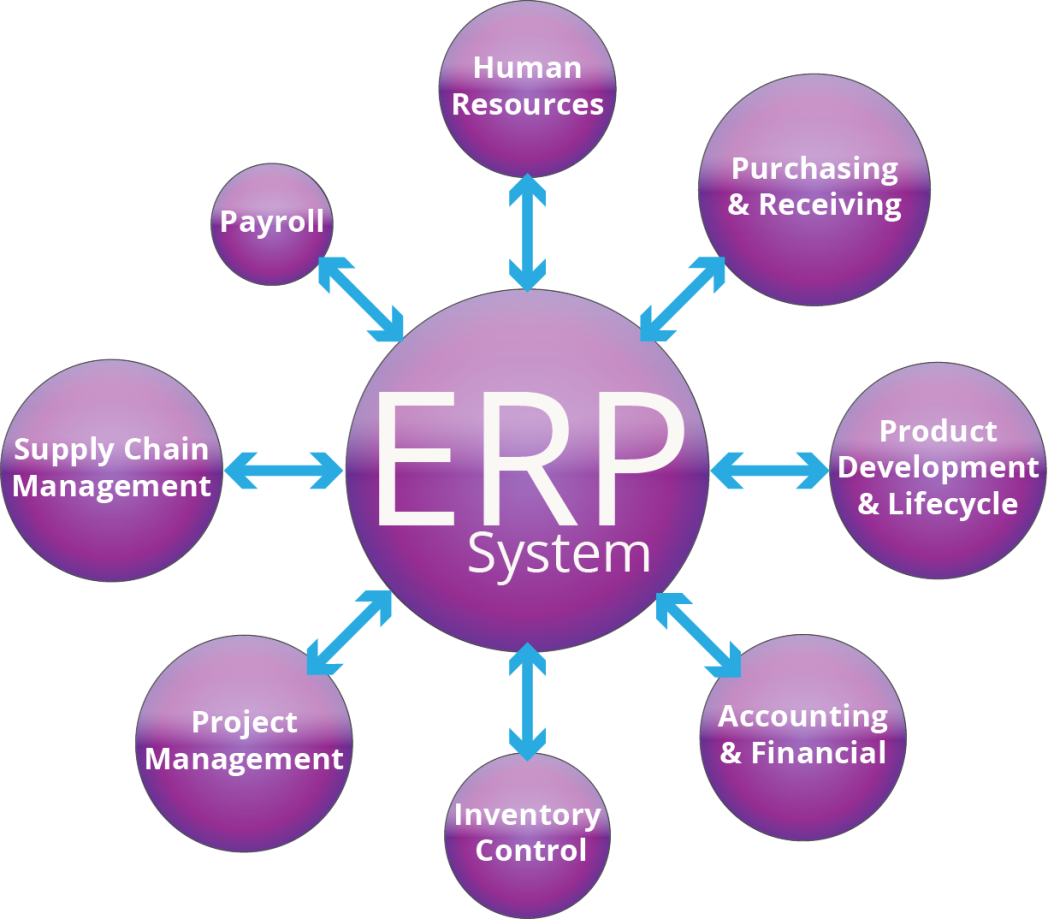An enterprise resource planning erp system is a – An enterprise resource planning (ERP) system is a game-changer for businesses, streamlining operations and empowering decision-makers. Get ready to dive into the world of ERP and discover how it can transform your business into a productivity powerhouse.
ERP systems are the backbone of modern businesses, connecting all aspects of your operations into a single, unified platform. From finance and supply chain management to customer relationship management and human resources, ERP systems provide real-time visibility, automate tasks, and enhance collaboration across your entire organization.
Definition and Overview

An Enterprise Resource Planning (ERP) system is a comprehensive software suite that integrates and automates various business processes across an organization. It serves as a central hub for managing and coordinating data, operations, and resources, providing a unified view of the entire business.
ERP systems are designed to streamline operations, enhance efficiency, and improve collaboration. They connect different departments and functions within an organization, such as finance, accounting, sales, marketing, manufacturing, and human resources, enabling them to share information and collaborate more effectively.
Key Features and Modules
ERP systems typically include a range of essential modules, each catering to a specific business function. These modules work together to provide a comprehensive solution for managing an organization’s operations.
- Financial Management:Manages financial data, including accounts payable, accounts receivable, general ledger, and cash flow.
- Supply Chain Management:Handles procurement, inventory management, order fulfillment, and warehouse operations.
- Customer Relationship Management (CRM):Tracks customer interactions, manages sales pipelines, and provides support.
- Human Capital Management (HCM):Manages employee data, payroll, benefits, and performance.
- Manufacturing Management:Plans and schedules production, tracks inventory, and monitors quality.
- Business Intelligence (BI):Provides data analytics and reporting capabilities to help organizations make informed decisions.
Benefits of ERP Implementation
Implementing an ERP system can bring numerous benefits to businesses, including:
- Improved Efficiency:Automates processes, reduces manual tasks, and streamlines operations, leading to increased productivity.
- Enhanced Collaboration:Provides a central platform for different departments to share information and collaborate, breaking down silos and fostering teamwork.
- Better Decision-Making:Offers real-time data and analytics, enabling businesses to make informed decisions based on accurate and up-to-date information.
- Reduced Costs:Streamlines operations, eliminates redundancies, and improves resource utilization, leading to cost savings.
- Increased Customer Satisfaction:Improves customer service by providing a single view of customer interactions and streamlining order fulfillment.
Challenges of ERP Implementation
While ERP systems offer significant benefits, implementing them can also pose challenges:
- High Costs:ERP systems can be expensive to purchase, implement, and maintain.
- Complexity:ERP systems are complex and require extensive customization to meet specific business needs.
- Data Migration:Migrating data from legacy systems to the ERP system can be time-consuming and error-prone.
- User Resistance:Employees may be resistant to change and may need training and support to adopt the new system.
To mitigate these challenges, it is crucial to conduct thorough planning, engage stakeholders, and seek professional assistance when necessary.
Industry-Specific Considerations
ERP systems are tailored to meet the specific needs of different industries. Some examples include:
- Manufacturing:ERP systems for manufacturing focus on production planning, inventory management, and quality control.
- Retail:ERP systems for retail manage point-of-sale (POS) systems, inventory, and customer loyalty programs.
- Healthcare:ERP systems for healthcare manage patient records, billing, and medical supplies.
- Nonprofit:ERP systems for nonprofits manage donations, fundraising, and volunteer management.
Best Practices for ERP Selection and Implementation, An enterprise resource planning erp system is a
To ensure a successful ERP implementation, it is important to follow best practices:
- Define Business Needs:Clearly identify the business needs that the ERP system will address.
- Evaluate and Select:Conduct thorough research and evaluate multiple ERP vendors to find the best fit for your organization.
- Plan and Prepare:Develop a detailed implementation plan, including data migration, user training, and change management.
- Implement and Customize:Deploy the ERP system and customize it to meet your specific requirements.
- Monitor and Evaluate:Track progress, monitor performance, and make adjustments as needed to ensure ongoing success.
Emerging Trends in ERP Systems
ERP systems are constantly evolving to meet the changing needs of businesses. Some emerging trends include:
- Cloud-Based ERP:ERP systems hosted on cloud platforms offer flexibility, scalability, and reduced IT costs.
- Artificial Intelligence (AI):AI-powered ERP systems automate tasks, improve decision-making, and provide personalized insights.
- Internet of Things (IoT):ERP systems integrated with IoT devices collect real-time data from sensors and equipment, enabling better decision-making and predictive maintenance.
- Mobile ERP:ERP systems accessible on mobile devices allow employees to access and manage business data from anywhere.
Summary: An Enterprise Resource Planning Erp System Is A
In the ever-evolving business landscape, ERP systems are the key to unlocking efficiency, growth, and competitive advantage. By embracing an ERP system, you’re not just investing in software; you’re investing in the future of your business.
Questions and Answers
What exactly is an ERP system?
An ERP system is a comprehensive software solution that integrates all core business processes into a single platform, providing real-time visibility and control across the entire organization.
What are the key benefits of implementing an ERP system?
ERP systems offer numerous benefits, including improved efficiency, enhanced collaboration, increased productivity, reduced costs, and better decision-making.
How do I choose the right ERP system for my business?
Selecting the right ERP system requires careful consideration of your business needs, industry, and budget. It’s essential to evaluate different vendors, request demos, and seek expert advice to find the best fit.